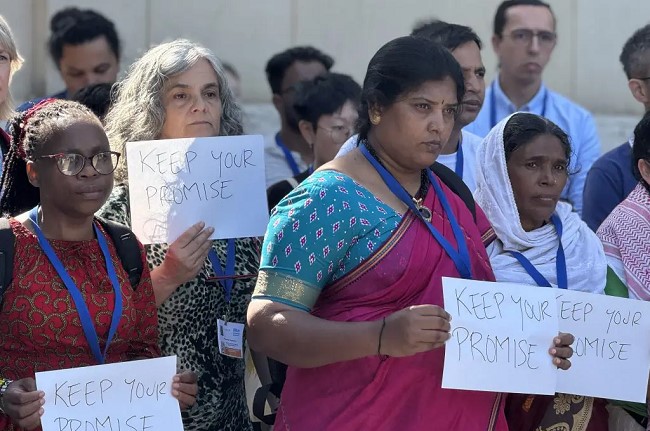In the labyrinth of the plastics treaty negotiations, one creature thrives: the INFINF – the “informal-informal.” Behind closed doors, in off the record meetings, key text is shaped out of sight.
It’s billed as efficient; in reality, it’s exclusion by design. Smaller delegations – often from the Global South – simply cannot be in every room at once, leaving critical provisions rewritten without their voice.

But the INFINF is only a symptom of a deeper problem: a decision-making process that hands the power of paralysis to the most obstructionist states. Like the UNFCCC, the INC relies on consensus, meaning a single delegation can hold the entire process hostage. We’ve seen this movie before – years lost, ambition gutted, trust eroded – all under the guise of “inclusive” decision-making.
The Chair’s job was to design a process capable of meeting UNEA’s mandate: a treaty covering the full lifecycle of plastics, with measures on production, just transition, and a robust financial mechanism. Instead, leadership has leaned on informal spaces and avoided the hard procedural choices needed to overcome deadlock. UNEA, too, must share the blame for allowing a framework that repeats the UNFCCC’s mistakes.
Yes, industry lobbying is a problem – the petrochemical sector is ever-present in the corridors – but so too are the delegations from developed economies, who have stalled agreement on the financial mechanism and a just transition. There is enough obstruction to go around while communities most affected by plastic pollution will bear the costs.
It is the Chair’s responsibility to navigate these tensions, protect the integrity of the process, and ensure that every delegation – regardless of size or power – has a fair voice in shaping the treaty. Leadership means not only managing the negotiations but actively preventing imbalance from becoming injustice. Without that, the process will remain tilted toward the loudest and wealthiest, and the promise of a plastics treaty that serves all nations will slip away.
By Nadine Wahab, Sustainable Network Egypt (SNE)
